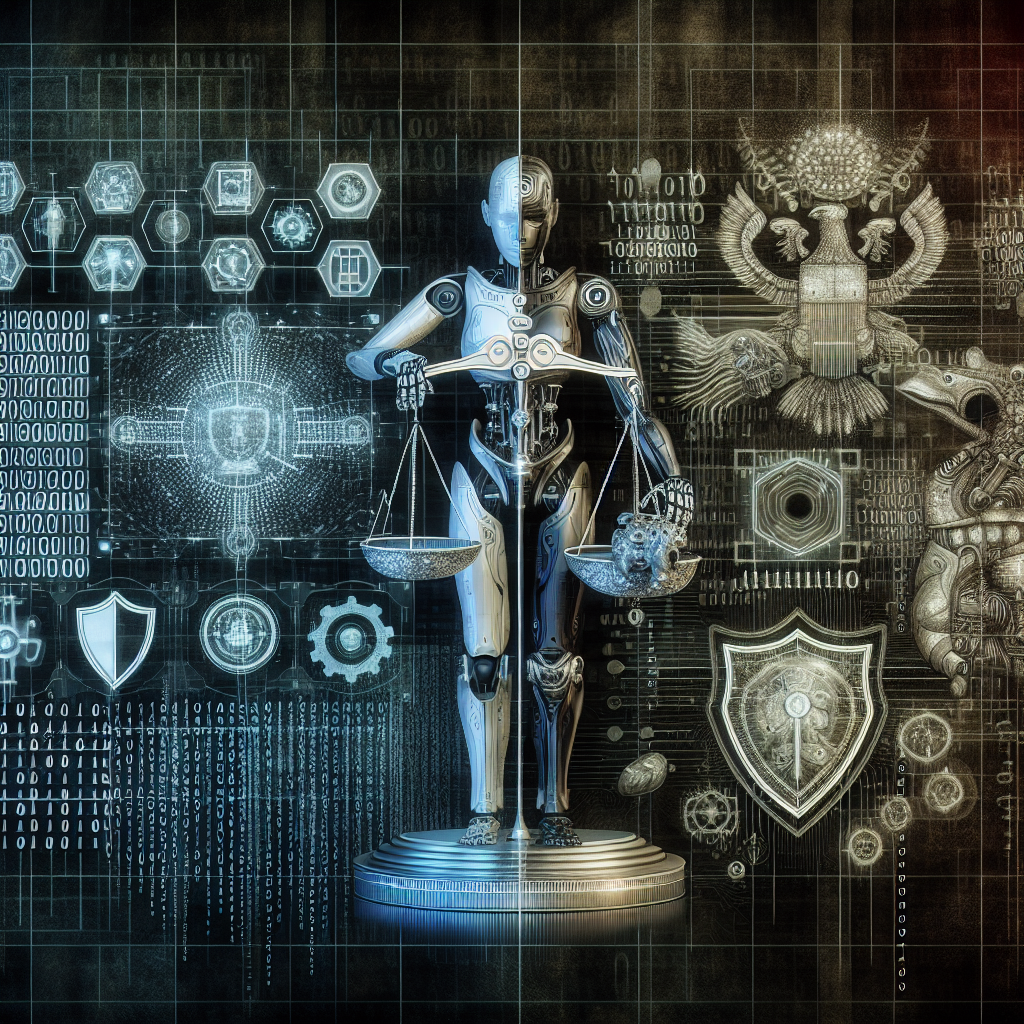Artificial intelligence (AI) has become an increasingly important tool in national security and defense. From autonomous weapons systems to surveillance technologies, AI has the potential to revolutionize the way countries protect their interests and ensure their security. However, the use of AI in national security raises a number of ethical questions and concerns that must be carefully considered.
One of the most pressing ethical questions surrounding the use of AI in national security is the issue of accountability. Who is responsible when an autonomous weapon system makes a mistake or causes harm? Unlike human soldiers, AI systems do not have the ability to make moral judgments or understand the consequences of their actions. This raises questions about how to assign blame and ensure that those responsible for AI systems are held accountable for their actions.
Another ethical concern is the potential for bias in AI systems. AI algorithms are only as good as the data they are trained on, and if that data is biased or flawed, it can lead to discriminatory outcomes. For example, a facial recognition system that is trained on a dataset that is predominantly male and white may be less accurate when identifying women or people of color. This raises concerns about the potential for AI systems to perpetuate or even exacerbate existing inequalities and injustices.
Additionally, the use of AI in national security raises concerns about privacy and surveillance. AI systems have the ability to collect and analyze vast amounts of data, raising questions about how that data is used and who has access to it. For example, the use of AI-powered surveillance systems to monitor and track individuals could infringe on their rights to privacy and freedom of movement.
There are also concerns about the potential for AI to be used in ways that are morally or ethically questionable. For example, the use of AI in autonomous weapons systems raises questions about the morality of delegating life and death decisions to machines. Similarly, the use of AI in cyber warfare could raise questions about the ethics of targeting civilian infrastructure or engaging in cyber attacks that could have far-reaching consequences.
In order to address these ethical concerns, it is important for governments and policymakers to develop clear guidelines and regulations for the use of AI in national security. This could include establishing protocols for ensuring accountability, transparency, and oversight of AI systems, as well as ensuring that AI systems are developed and used in ways that are consistent with international human rights standards.
It is also important for governments to engage with the public and stakeholders to ensure that the use of AI in national security is conducted in a transparent and ethical manner. This could involve conducting public consultations, engaging with civil society organizations, and incorporating ethical considerations into the decision-making process.
In conclusion, the use of AI in national security raises a number of ethical questions and concerns that must be carefully considered. By addressing issues of accountability, bias, privacy, and morality, governments can ensure that the use of AI in national security is conducted in a way that is consistent with ethical principles and human rights standards.
FAQs:
Q: Can AI be used ethically in national security?
A: Yes, AI can be used ethically in national security, but it is important for governments and policymakers to develop clear guidelines and regulations to ensure that AI systems are used in a way that is consistent with ethical principles and human rights standards.
Q: What are some of the ethical concerns surrounding the use of AI in national security?
A: Some of the ethical concerns surrounding the use of AI in national security include issues of accountability, bias, privacy, and morality.
Q: How can governments address ethical concerns related to the use of AI in national security?
A: Governments can address ethical concerns related to the use of AI in national security by developing clear guidelines and regulations, engaging with the public and stakeholders, and incorporating ethical considerations into the decision-making process.

